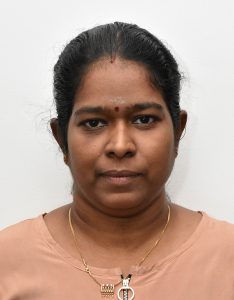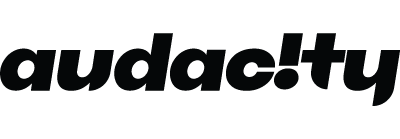Building a Tourism Sector that is Inclusive and Accessible
While we champion the cause of sustainable development in the tourism industry, we need to give equal consideration to the importance of inclusivity and accessibility in the sector – both from the perspective of the traveler and the tourism worker.
Rizwan* is a young man who has wanted to work in the tourism sector from a very young age. Coming from the coastal town of Arugam Bay, Rizwan knows how tourism can impact a community in a positive way, and he has a passion to contribute and get involved. However, the fact that he is hearing and speech impaired has been a huge stumbling block for the lad, as very few employers are willing to give differently abled people an opportunity. This is the unfortunate reality for so many persons with disabilities – isn’t it time we made a change?
While we may not have accurate statistics on the inclusion of differently abled workers in Sri Lanka’s tourism industry, the 2011 World Report on Disability stated that an estimated 12.9% of the Sri Lankan population has a disability, a number that may be rather conservative, especially considering the ravages of the 30-year long civil war.
The On-Ground Situation
Surveys conducted in 2017 and 2018 by Skills for Inclusive Growth (S4IG) in the four districts it conducted programs in, found that persons with disabilities made up less than 1% of the workforce. Program research also revealed that there were no enrolments from people with disabilities in any tourism related training courses in the four districts. The survey findings indicated that business owners were hesitant to employ persons with disabilities, citing lack of experience, insufficient capacity to train and support them. When asked if they would be willing to provide an opportunity to a candidate with relevant experience, only a quarter of respondents said they were willing to.
S4IG has technically supported partners to implement three flagship initiatives that can pave the way for change in attitude, behaviour and practice in terms of including persons with disabilities in the workforce – particularly in the tourism sector.
The program’s strategic interventions on disability inclusion in the tourism value chain took place through the following:
- Generating role models and disability champions to boost disability inclusion in the industry
- Challenging stereotypes about the type of jobs that people with disabilities can do through the provision of reasonable adjustments
- Piloting inclusive and flexible training models to address disability-related barriers
- Showcasing improved human resource and work organisation which delivers better incomes and gainful employment initiatives for people with disabilities
Change in Action
S4IG’s partnership with Tertiary and Vocational Education Commission (TVEC), the Ministry of Skills and small enterprises affiliated with Federation of Chambers of Commerce and Industry of Sri Lanka (FCCISL) have tested models that have had an impact in the three specific areas outlined below:
1. Policy improvement – S4IG supports the Tertiary and Vocational Education Commission (TVEC) to issue a government circular that legally binds Technical and Vocational Education and Training (TVET) certified assessors and training institutions to provide reasonable adjustments for trainees with disabilities during examinations nationwide, and to embed disability inclusion assessment into TVEC assessors’ training plan. The guidelines, an inclusion tool kit and set of occupationally relevant but adjusted assessment tools are now available supporting several occupational outcomes in the tourism sector.
2. Employment Linked Training – S4IG, with several service providers including YMCA, deployed the (ELTP Skills and Employment Model) – ‘employment linked training program’ initiated by the Ministry of Skills. This model enables the Ministry to purchase training and employment services from the private sector to address skills gaps or improve employment outcomes in areas where government training is not available or does not provide employment outcomes for trainees. This program can also purchase services to support vulnerable communities that are not able to access quality vocational training – women, people with disabilities and those living in rural and remote communities. S4IG’s support to this program delivered results which enabled persons with disabilities to access higher income employment as tour guides, bakers, chefs and travel consultants amongst others.
TVEC has assigned YMCA as an agency for the provision of employment linked skills development opportunities for people with disabilities, replicating the successful skill model for employment. The objective of the model is to increase the relevance of vocational training and support people entering the training system to acquire skills relevant to the occupational skill requirements of employers in the tourism and hospitality industry. Higher income earning employment is the ultimate purpose and success indicator of a skills development system. Specific equity targets can now be determined to meet government policy requirements for improved gender equity and opportunities for persons with a disability. Government can now purchase services on a performance basis ensuring all people can access skills relevant to meaningful employment.
3. Flexible training course accreditation – Flexibility is a key approach for improving the situation for people with disabilities who have been excluded from the TVET system. As people with intellectual disabilities may struggle with generalization and academic teaching methods, S4IG supported partners to pilot an ‘adapted’ NVQ Level 2 workplace room attendant training course for 10 participants with intellectual disabilities, so they can learn new skills in real life situations. Assessment is through the application of skills to required industry standards in the workplace. Workplace learning ensures that training is relevant to developing occupational competence giving people the chance to demonstrate skills and be assessed to real work and industry standards.

“Flexible delivery approaches to skills development (work based, online and blended approaches), and revised assessment systems can ensure skills being assessed were occupationally relevant and focused on employability. This removed barriers that included transport and travel to training centres, restricted access to assessment, and showcased examples of reasonable adjustment, including revised government assessment guidelines that can be replicated across the skills development system nationally,” says Suriya Jegatharan, inclusion officer of S4IG program.
Inspiring Outcomes
Rizwan’s dream to work in tourism began to materialize with the innovative skills model developed by S4IG, TVEC and disability stakeholders. On learning about the international cookery program offered, through S4IG, he was excited to join, but also anxious that his disabilities would pose problems in a formal learning environment. He was pleasantly surprised, however, to find out that the course work could be taught through video and practical demonstrations.
Having successfully completed his training, Rizwan’s next hurdle was finding an employer who would be willing to take a chance on him. Although initially hesitant to hire a person with a disability, the owner of a local hotel was willing to give him an opportunity to prove himself. Having been hired as an Assistant Cook, Rizwan has proved his worth to the business by being diligent, reliable, eager to learn and competent in cookery and kitchen operations. In a bid to make the working environment comfortable for Rizwan, his employer began to learn sign language so that he could communicate more effectively.
The owner of the hotel has also been inspired to provide opportunities for more differently abled persons, now that he knows that a disability does not have to impede someone from getting a job done.
Another inspiring story is one about two local youth with intellectual disabilities who have been trained in house keeping and employed by a local resort. While each person with an intellectual disability has a different experience, the general challenges include transferring knowledge, difficulty in memory language development and speech disorders. The resort management made accommodations for the young men by introducing a colour coding system to differentiate the use of chemicals for cleaning rooms and clothes.
The manager of the resort says that the two youth are very dedicated workers, are punctual, clearly listen to the duties assigned to them and complete their duties conscientiously. He sees a stark difference between these two employees and other young workers who need follow-up and who are rather distracted with their mobile phones!
The important takeaway is that a person with a disability should not be disregarded or deemed unsuitable for a job, simply based on the fact that they have a disability. The skills model initiated by S4IG and implemented by key partners has shown ample evidence that by providing reasonable adjustments, adequate training and working to change attitudes, the tourism sector has the potential to be more inclusive and welcoming to everyone.
*Names changed to protect privacy
For more information about the program please contact Ms. Surya Jegatharan, Inclusion Officer, S4IG –
Suriya.Jegatharan@inclusivegrowth.com.lk
Photo Credits: Skills for Inclusive Growth
Sources: http://inclusivegrowth.com.lk/about-us/disability-inclusion/






